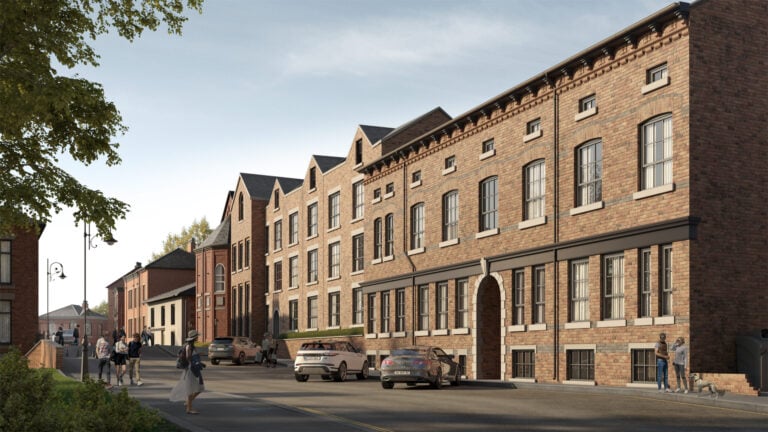After a petition for a stamp duty holiday extension racked up nearly 140,000 signatures, MPs took part in a cross-party debate on the matter.
In the past few months, there has been mounting pressure on the government to extend the stamp duty holiday past 31 March. On 1 February, MPs debated this matter after an e-petition for a six-month extension reached over 100,000 signatures.
During the debate, there was cross-party support for an extension of some kind to the stamp duty holiday. Many MPs agreed there needs to be at least a tapering end. This would help support homebuyers and sellers in the middle of property transactions.
Mark Hayward, chief policy advisor at Propertymark, says: “We are pleased to see that there is clearly cross-party support for a holiday extension or tapered end given the concerning cliff-edge is now only two months away.”
In October, Housing Minister Christopher Pincher stated that the government does not plan to extend the stamp duty holiday. It was always meant to be a temporary relief. However, with the current lockdown and delays to property sales, many feel the government should reassess this. During the debate, Jesse Norman, a treasury minister, said he couldn’t commit to any policy before the Spring Budget.
Guy Gittins, managing director of estate agency Chestertons, comments: “The government’s debate highlighted the pros and cons of a potential stamp duty holiday extension, however property buyers were hoping for a clear decision. Whilst we expect more clarity to be brought via the chancellor’s Spring Budget in March, the lack of clarity will leave many buyers feeling on edge until then.”
The impact of the stamp duty holiday
The stamp duty holiday extension came into effect 8 July 2020 and is set to end on 31 March 2021. Since then, the property market has been booming. The sector has seen unprecedented levels of demand and has boosted the economy throughout the COVID-19 pandemic.
In 2020, the housing market temporarily shut down during the first lockdown. Despite that, sales agreed throughout the year surpassed figures from 2019 by over 10%. Transaction levels were even at the strongest level in over a decade.
Many homebuyers brought forward moves to take advantage of the stamp duty holiday. This exemption provided buyers the opportunity to save up to £15,000 on a property purchase. And many are rushing to beat the deadline.
“The one thing that is abundantly clear is that this Stamp Duty Holiday has enabled thousands of people to afford to move; something that they have possibly been putting off for the last three years,” Guy Gittins states. “This shows that the current stamp duty structure requires an urgent review, particularly in light of peoples’ changing needs following the pandemic.”
The pressure the property industry is facing
With the significant increase in property transactions, pressure is mounting on conveyancers, lenders and surveyors. They have been dealing record volumes of transactions, which has led to buyers and sellers facing delays.
It has been challenging for property professionals to keep up with this unprecedented level of activity. In 2019, property transactions took an average of 14 weeks from sales to completion, according to View My Chain. However, this is now taking an average of 22 weeks.
Homebuyers who were expecting to complete before the stamp duty holiday deadline could face unexpected tax bills. This will likely lead to a significant number of property transactions falling through. Additionally, if the holiday is not extended or tapered, housing market activity could grind to a halt. And house prices will also likely start to fall after the deadline passes.
The chief policy advisor at Propertymark states: “The housing market boom, caused by the stamp duty holiday, has been hugely beneficial; however, the stamp duty cliff edge on the 31st March could cause thousands of sales to fall at the final hurdle and have a knock on and drastic effect on the housing market which has recovered well from the COVID-19 slump.”
The property market is starting to slow down
With the stamp duty holiday deadline approaching, the property market is starting to feel the effects already. Data from Nationwide reveals annual house price growth has slowed for the first time in the past six months. Additionally, there has already been an increase in property sales falling through, according to Rightmove.
Recent research by The Guild of Property Professionals also reveals 31% of buyers are very likely to cancel their planned moves if they end up having to pay stamp duty. And a further 43% admitted they would most likely do the same.
Iain McKenzie, CEO of the guild, concludes: “The signs are there, the stamp duty holiday has been successful, but we need to ensure a smooth transition back to a normal service.”
Many of the UK’s property professionals, homebuyers, investors and sellers are eagerly awaiting an announcement on the stamp duty holiday. This will likely happen at the Spring Budget on 3 March.










